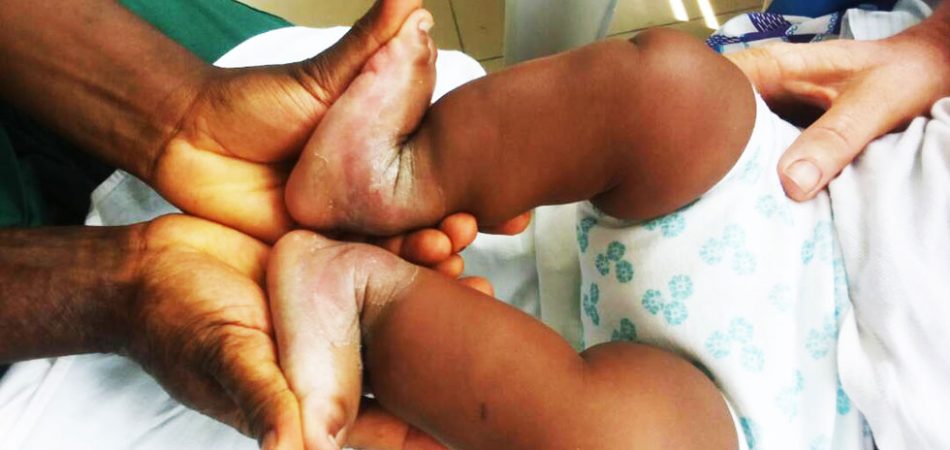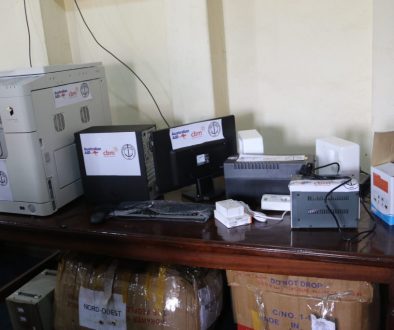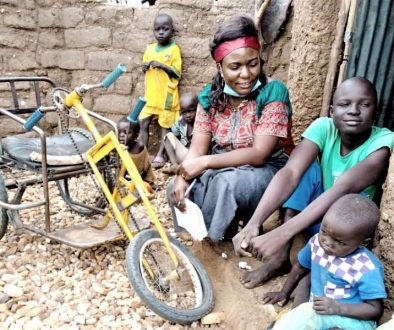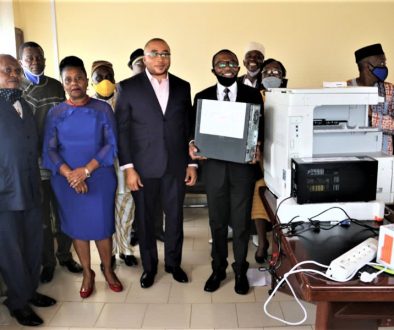CBC Health Services Restates her Commitment to Treating Clubfoot
By Fru Rita & Njoka Divine
Edited by Mufuh Ramiro
The continuous delivery of babies with clubfoot each year, neglect of these babies, ignorance of the right treatment methods for clubfoot deformities, and the inadequate existence of clubfoot treatment services are some of the challenges involved in handling clubfoot deformity in Cameroon.
The Global Clubfoot Initiative reports that over 150,000 – 200,000 babies with Clubfoot are born each year around the world, with approximately 80% in developing countries including Cameroon.
According to the Cameroon Clubfoot Care Project (CCCP), the clubfoot deformity if not treated, can cause a life time deformity.
Donald, aged 18, is one of those who have benefitted from clubfoot treatment by CCCP. Donald’s deformity was neglected when he was just a child but presently he is finally undergoing treatment.
His visibly happy mother said “I was very depressed when I gave birth to my child with clubfoot. We didn’t know that he’ll walk again. But now our hearts are filled with joy when we see our son walking like other children.”
With this regard, commitments towards preventing disabilities and creating awareness on ways to better handle the clubfoot deformity have been a major priority. Another great opportunity to raise awareness on the clubfoot deformity was during World Clubfoot Day on June 6, 2018. The Cameroon Baptist Convention (CBC) Health Services commemorated the event for the 4th time in Bafoussam, in the West Region of Cameroon.
This year’s Day was observed under the theme “Increase commitment by local and national stakeholders to ensure clubfoot treatment.” The CBC Health Services activities to mark the international event had as focus: “Take concrete actions to ensure that clubfoot services are available at all levels.”
During the commemoration at Bafoussam Baptist Hospital (Newly created hospital of the CBC Health Services), Dr. Henry Ndasi, Orthopedic Surgeon and Clinical Supervisor of the CCCP demonstrated to the population the ‘Ponseti method’ of clubfoot treatment.
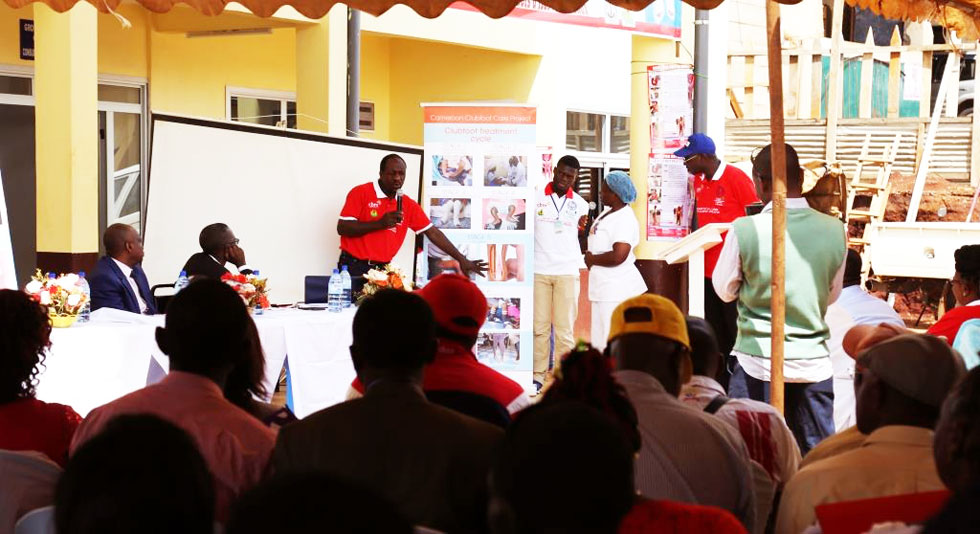
The Ponseti method is pioneered by Spanish physician Dr Ignacio Ponseti. The method involves correcting the feet by gently stretching the tendons and ligaments in the foot so they assume the right position with a series of braces and plaster casts.
Dr. Ndasi said the clubfoot deformity has no cause and is not acquired. He explained that children are born with it. He stated that it can be treated using four steps through the Ponseti method which is considered to be most effective.
“The treatment process starts ideally few weeks after the child is born,” said Dr. Ndasi.
“After the first part of the treatment, the child must wear a foot brace for between 16 and 23 hours a day for four to five years, to prevent the feet from turning back in. Just like the braces used for teeth, the foot eventually assumes a new, straightened position.
The Ponseti method corrects the foot better in a way that leads a patient to a complete normal life, unlike the surgical method which is sometimes painful and may lead to future complications,” explained Dr. Ndasi.
The CBC Health Services’ efforts towards curbing clubfoot deformity in Cameroon started in June 2014 with the setting up of the Cameroon Clubfoot Care Project (CCCP).
The Project has since established clubfoot treatment centers in Mbingo Baptist Hospital, Banso Baptist Hospital, Mutengene Baptist Hospital and Bafoussam Baptist Hospital.
From 2014 up until May 2018, CCCP had treated more than 700 children with the clubfoot deformity both from within Cameroon and beyond.
Clubfoot Project Officer, Tina Ashiyo, said during the presentation of CCCP that “A child is owned by a community. Everyone in the community must ensure that children born with clubfoot deformity are referred to appropriate treatment centers.”
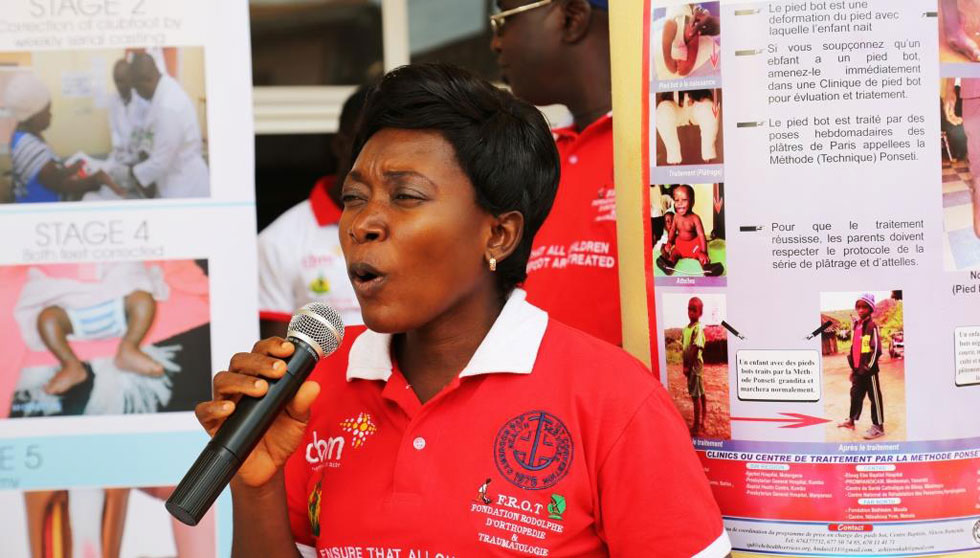
“People should create awareness on clubfoot treatment in Churches, meeting groups, and other social gatherings. The goal of World Clubfoot Day is to raise awareness about the disability: its prevention and treatment using the Ponseti Method,” emphasized Tina.
The Regional Delegate of Public Health in Cameroon’s West Region, Dr. Moupain Salifou, who chaired the World Clubfoot Day celebration at Bafoussam Baptist Hospital regretted that children born with the clubfoot deformity are at risk of not completing school, not finding a job, and being excluded from social participations.
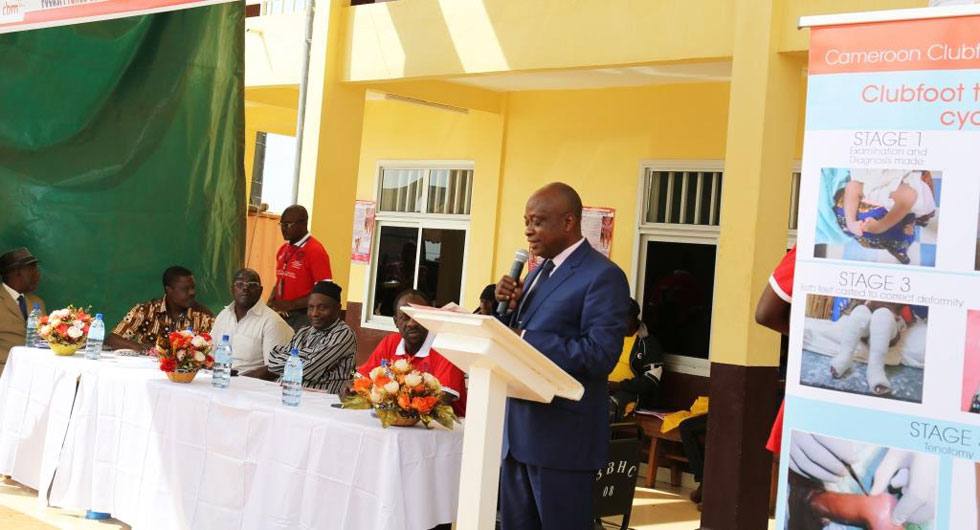
Given the challenges faced by children with clubfoot, the Delegate has encouraged the public to take measures that ensure the treatment of the clubfoot deformity in their communities.
The Cameroon Clubfoot Care Project Manager, Mr. Awa Jacques Chirac, led a team to the Regional Delegation of Public Health in the West Region where he presented the Project to the Delegate. The Delegate assured the team of government’s commitment to work with the CCCP to ensure that children with clubfoot deformity in Cameroon are treated.
